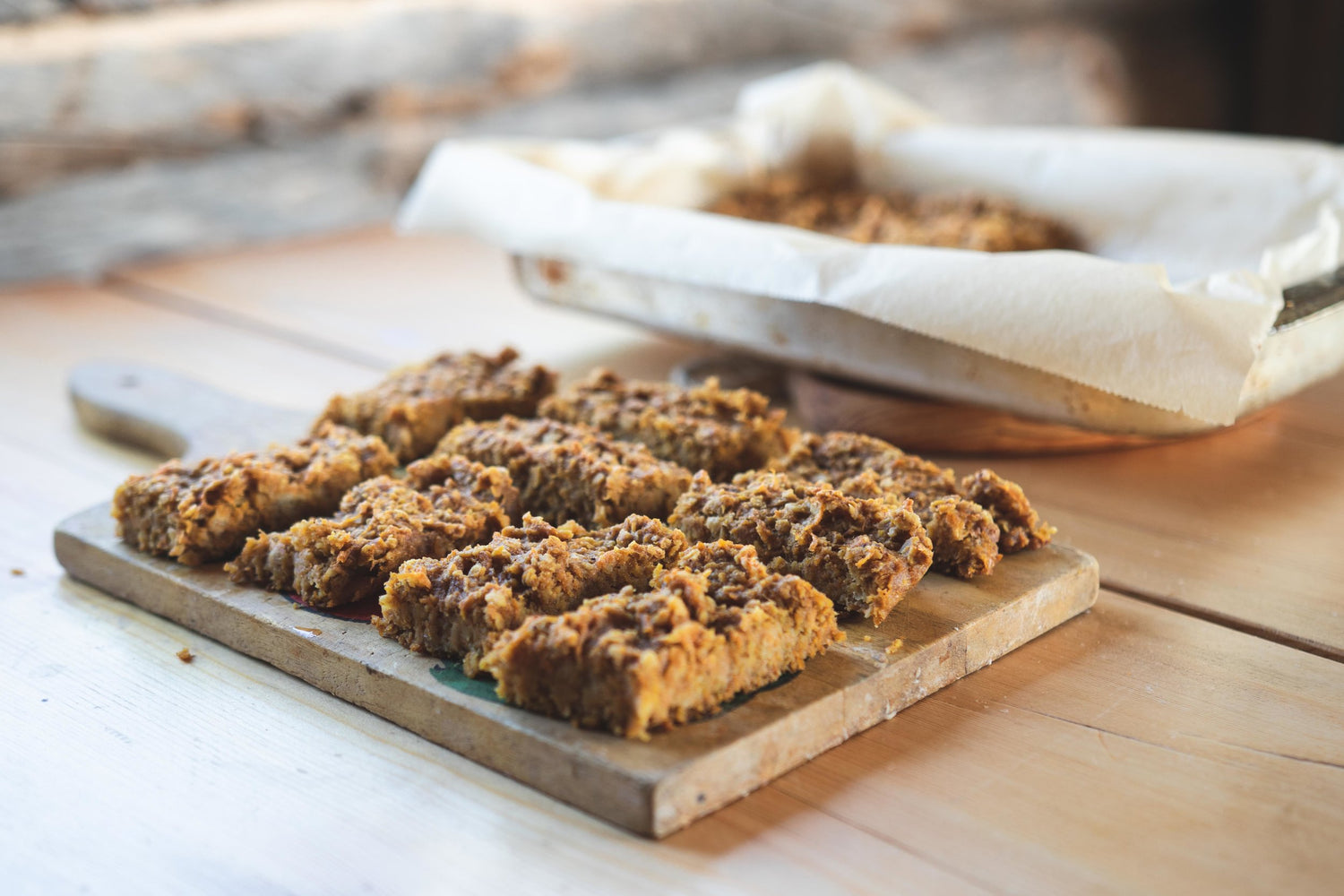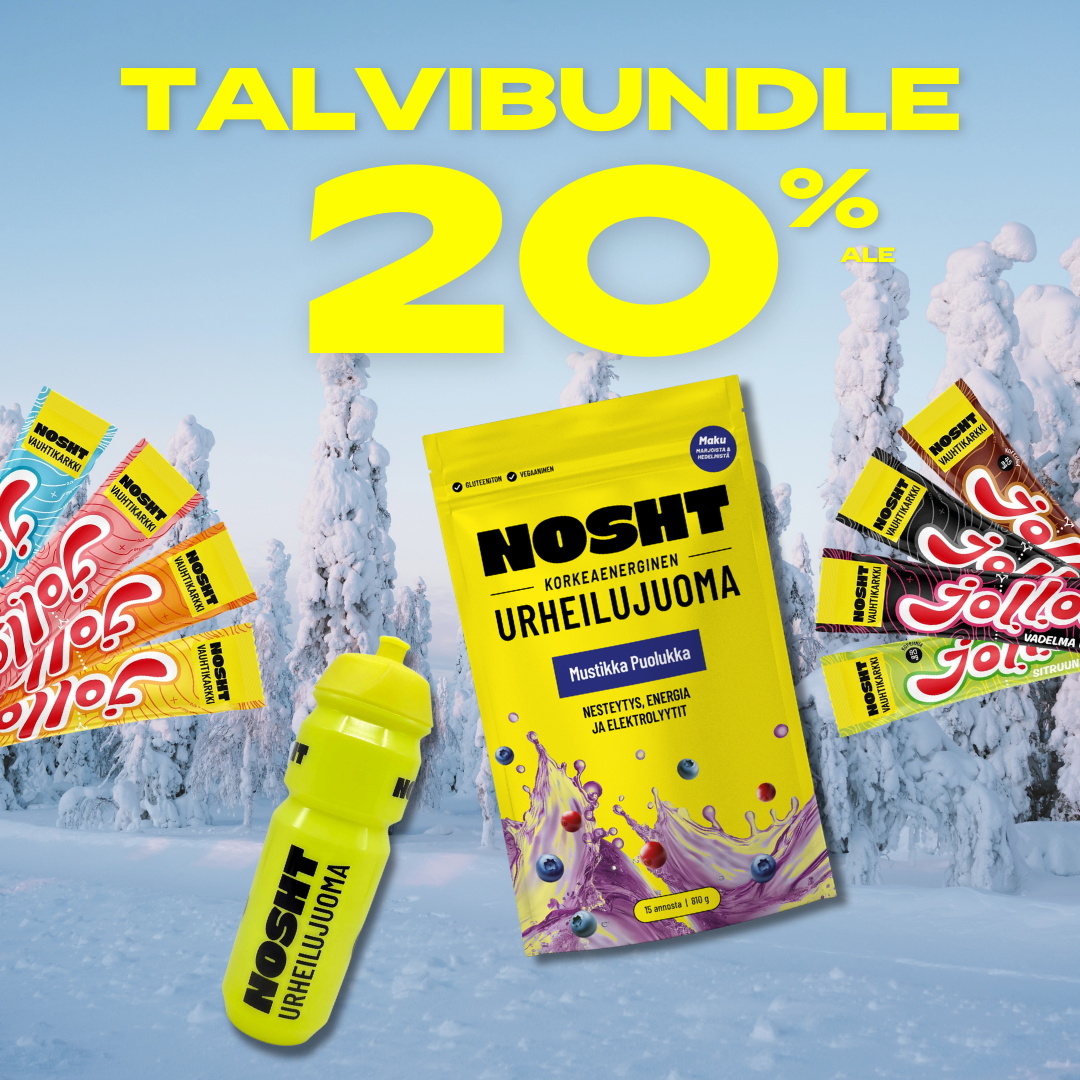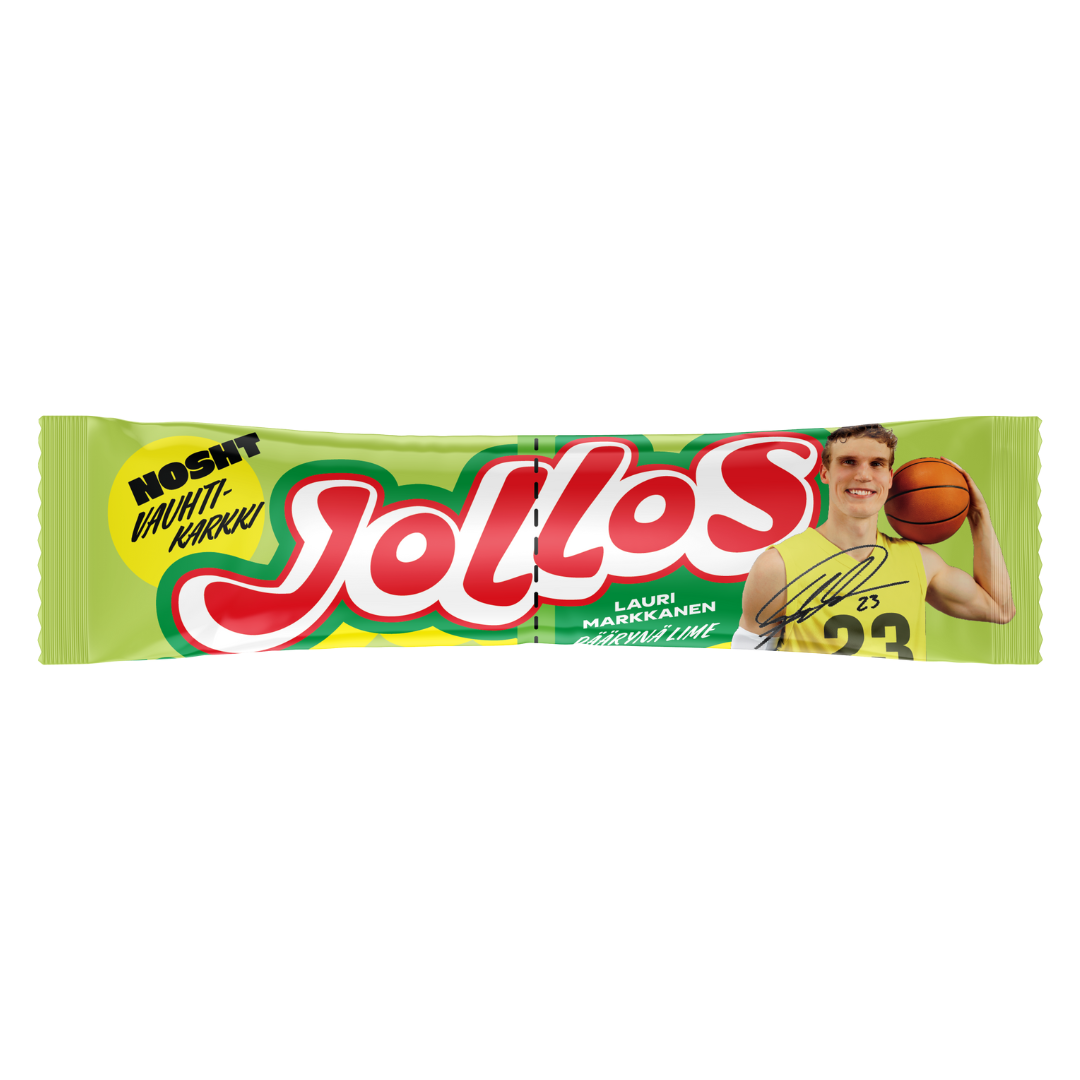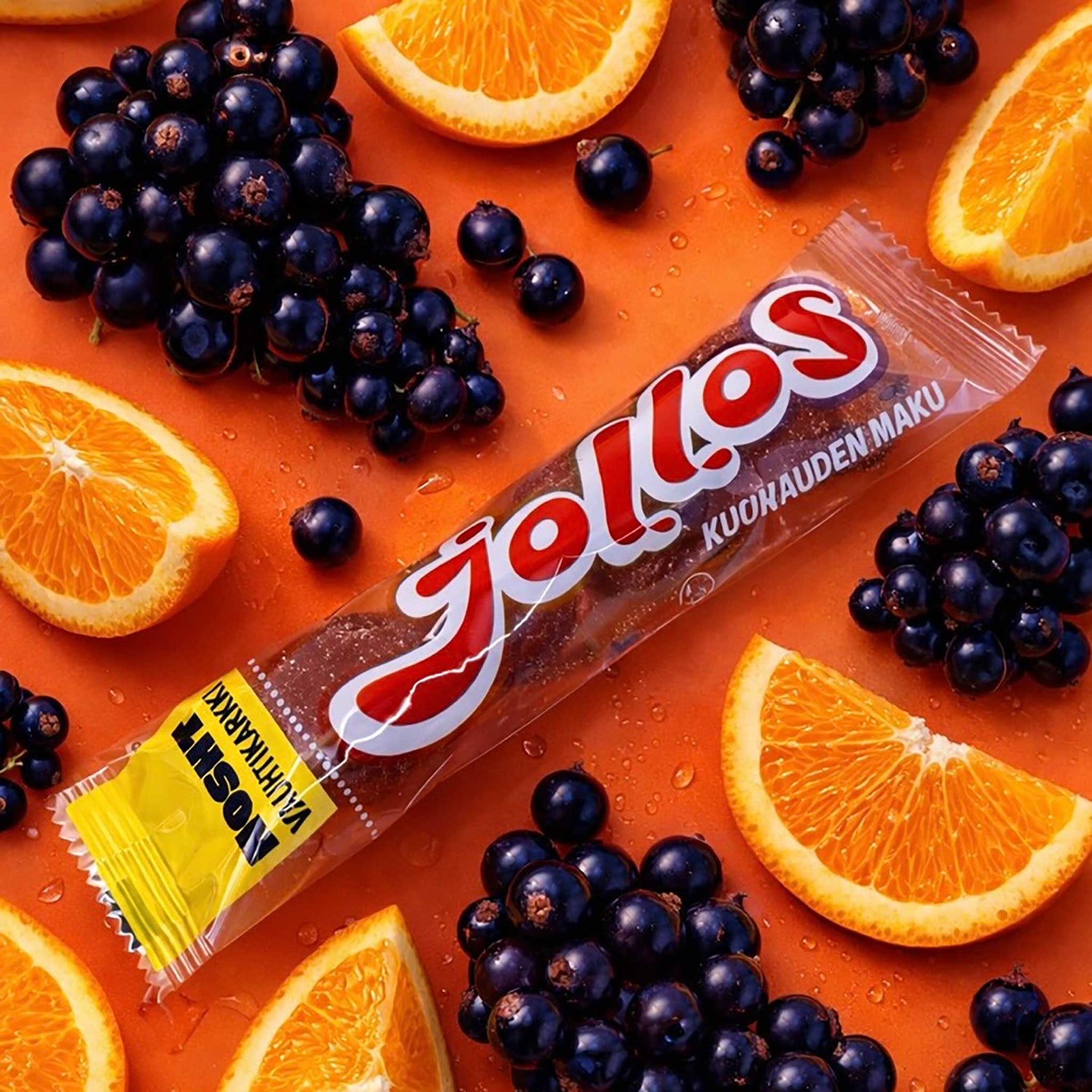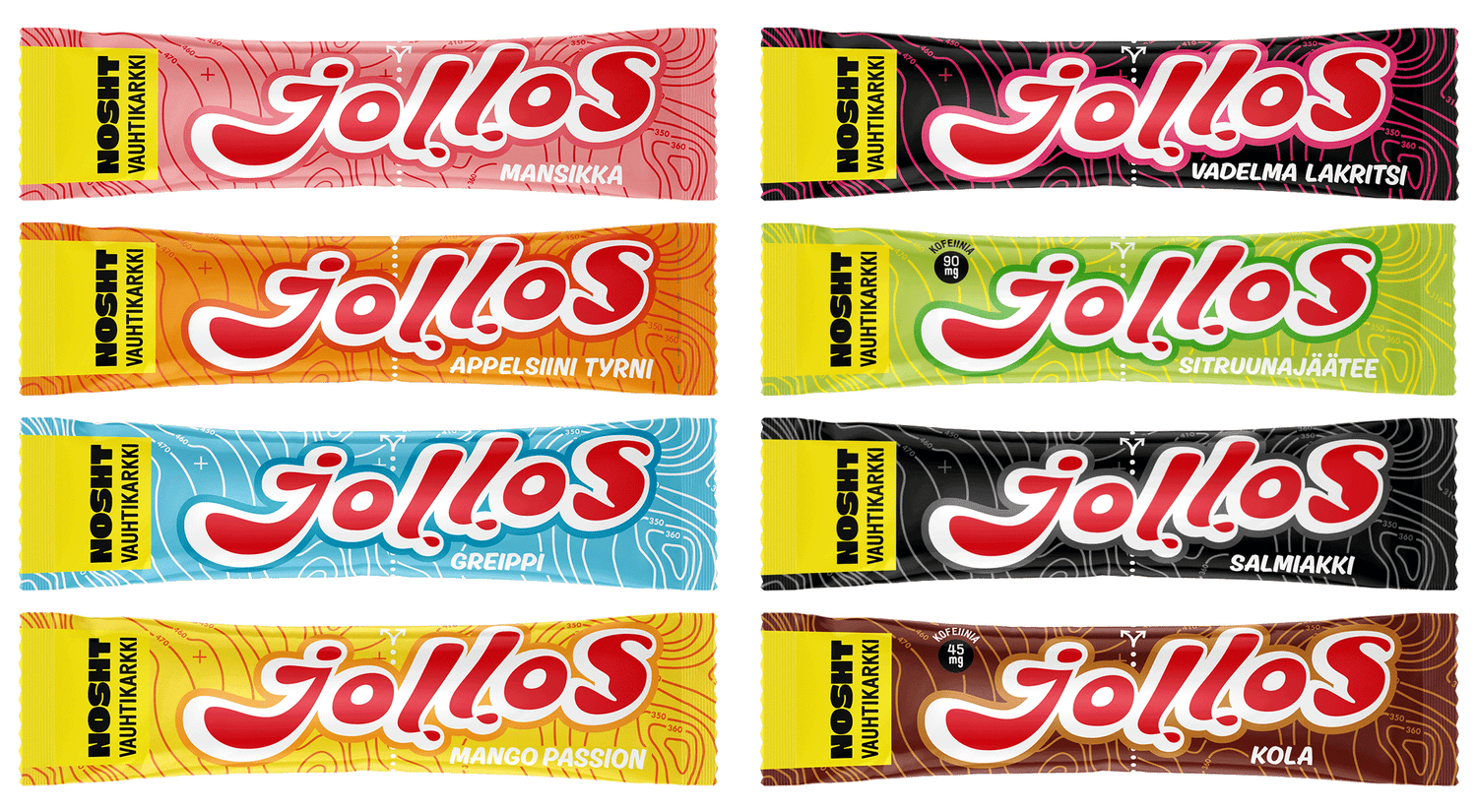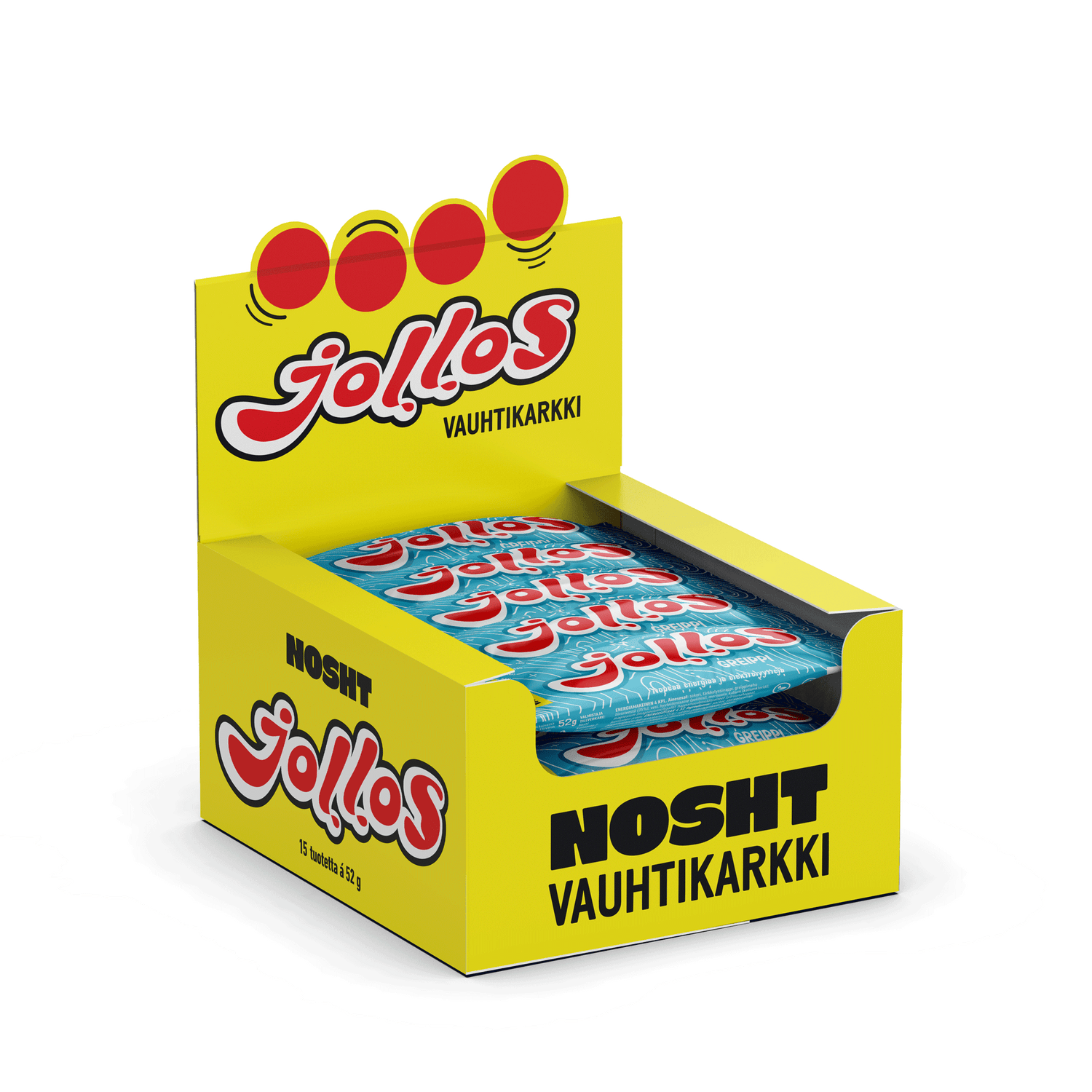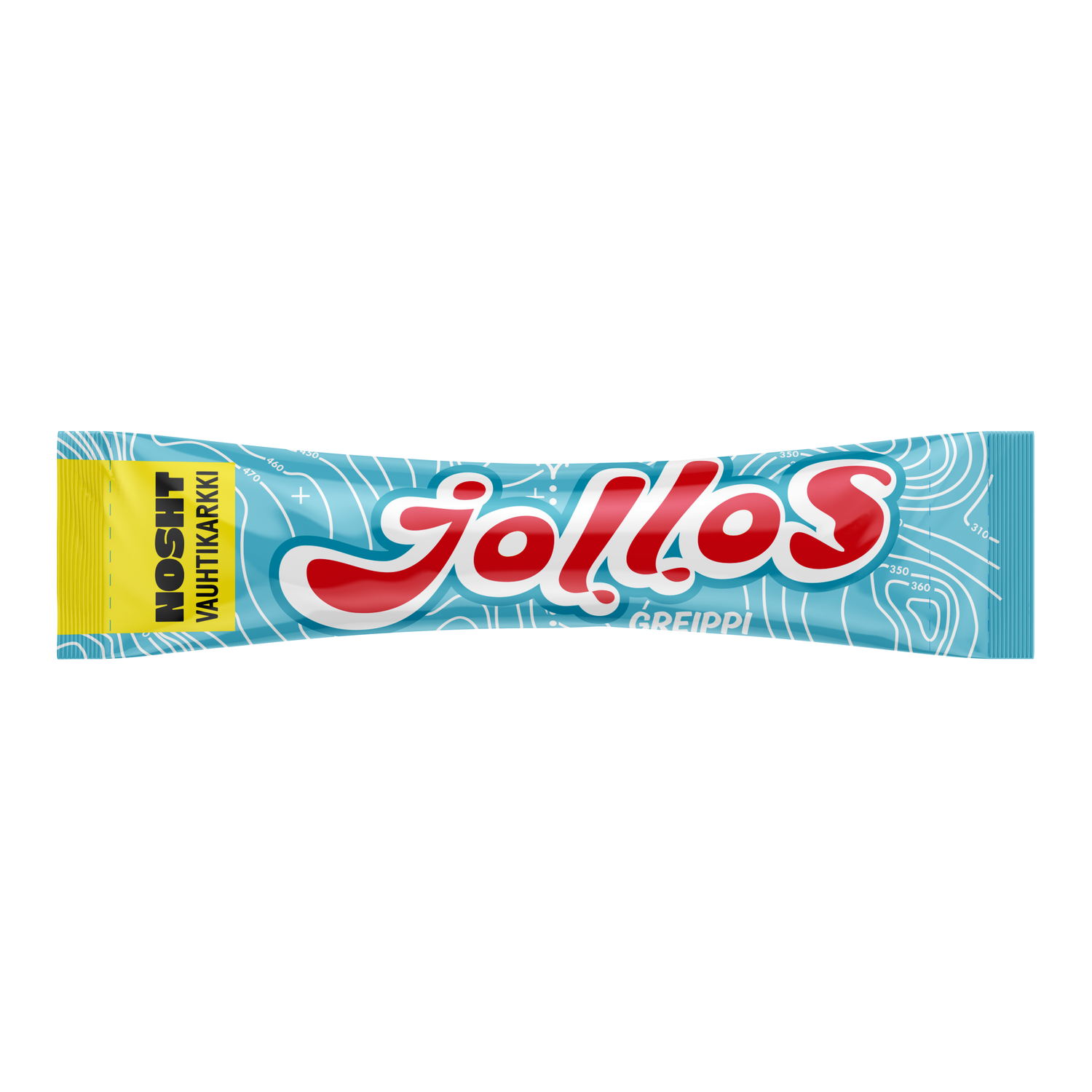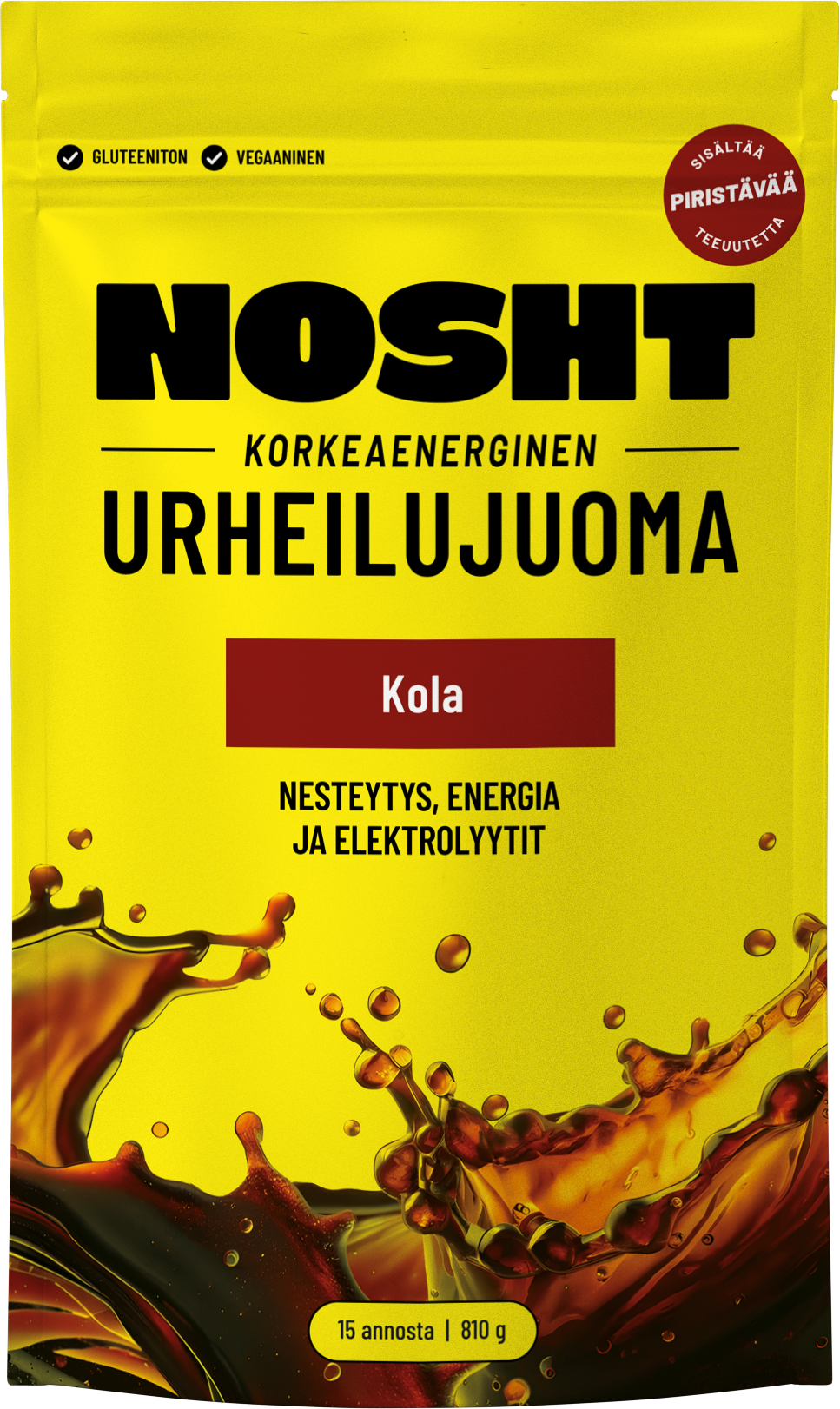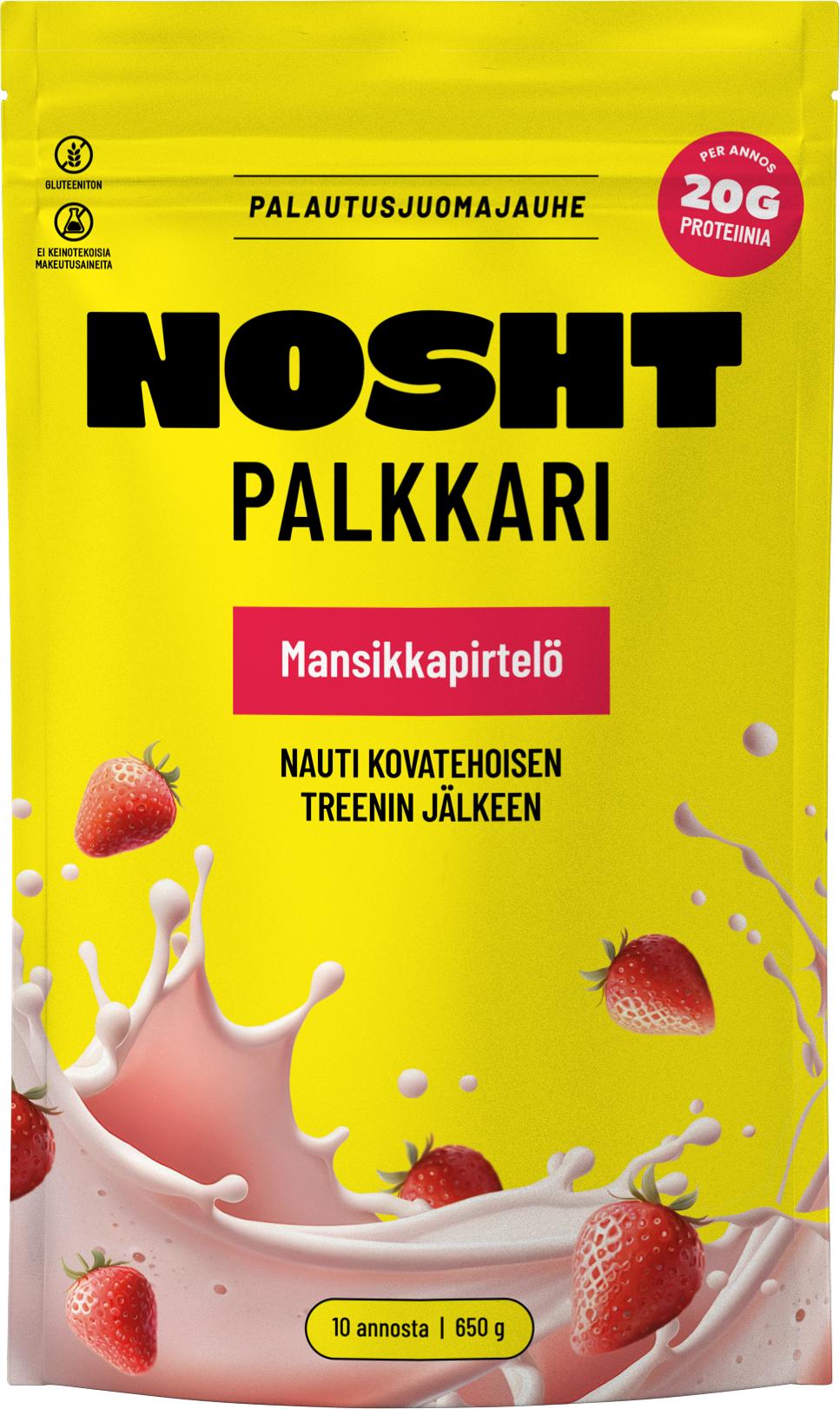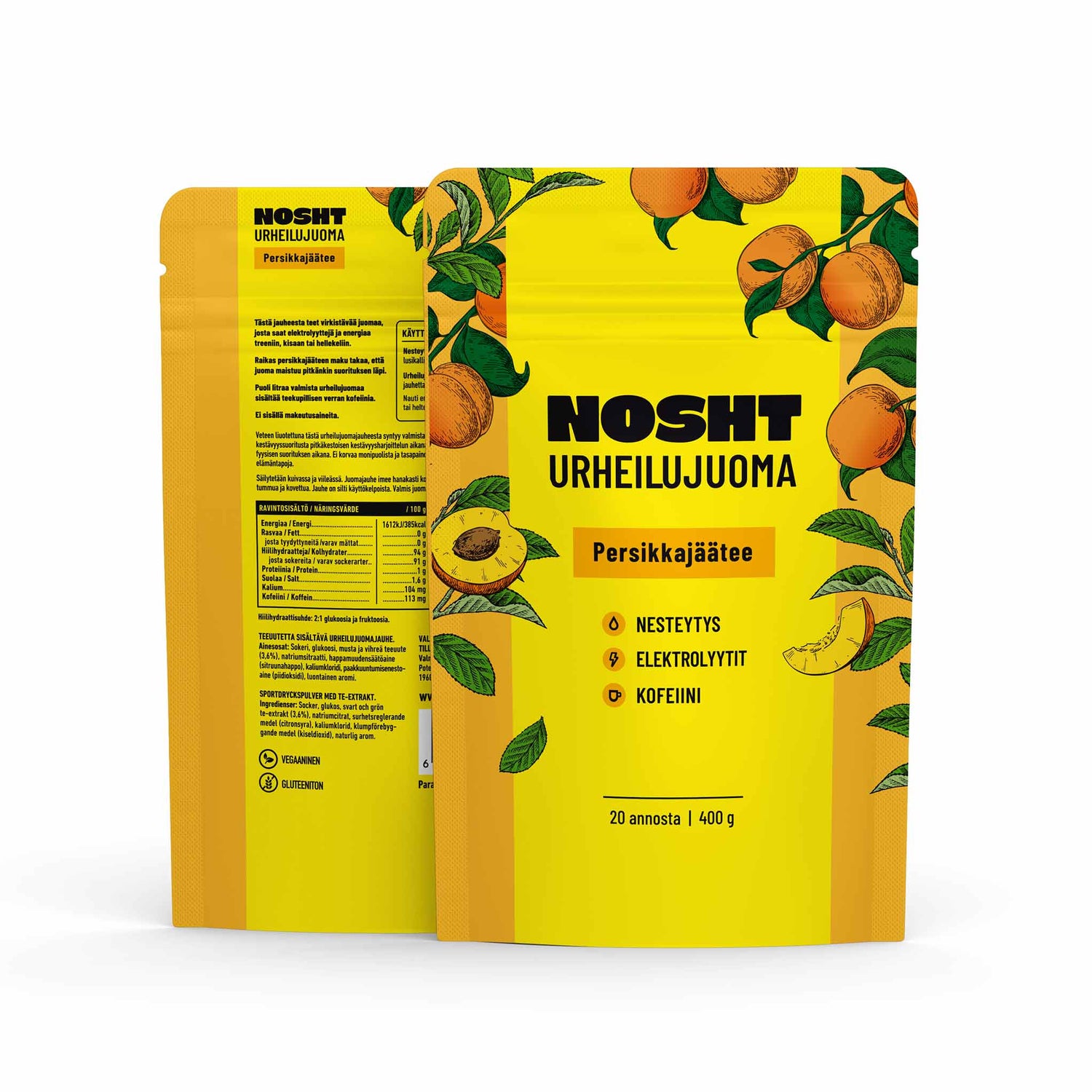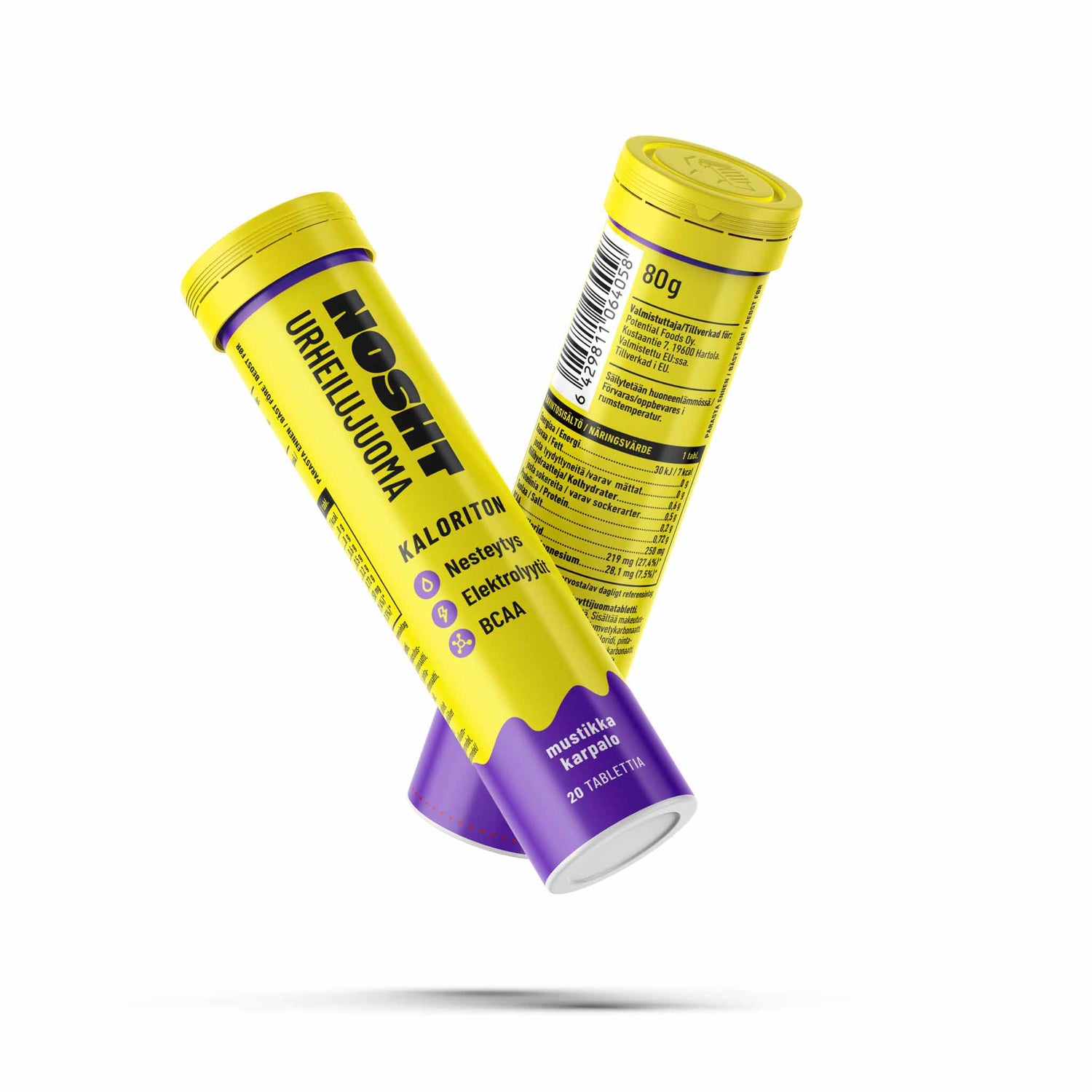Here's an easily eatable, soft and delicious oat-based energy bar that gives you a boost on a training run, competition day or whenever you need a snack on the go. The recipe is vegan, gluten-free and low-FODMAP.
Along with physical training and gear adaptations, testing the race fuel in action is a big part of the preparation for a competition. You do not want to test new things, be it food, gear or pace while aiming for the optimal performance with a bib on a T-shirt. Training the gut to tolerate eating and drinking while performing is important for both gut comfort and better absorption of the nutrients.
There is a clear correlation between faster finishing times and greater consumption of carbohydrates, as long as the stomach keeps working with the rest of the body the whole way. Physical exercise limits blood flow to the gut and mechanical stress from running (continuous strikes) or cycling (pressure on the stomach from the position) decrease the gut’s ability to absorb and digest food and can cause issues in races. Training the digestive system beforehand can however greatly decrease problems and lead to better gut function on the competition day. Long exercise rounds are a great opportunity to test different fuel options like gels, chews, bars and drinks and to find the best strategy for eating in the race.

Fast and easily digestible carbohydrates are often preferred during high-intensity races since they rapidly provide energy for working muscles. They usually cause only minor stress on the stomach. Sources of fast carbohydrates are sugar-containing products such as energy gels, energy chews, bars and candies. There are different types of carbohydrates and the body’s ability to use only one type is limited. Combining different sources of carbohydrates is a good way to increase the absorption of energy without causing gut distress. Glucose to fructose ratio of 2:1 is commonly used and well-tolerated by the body. This is also the ratio that we use in our energy gels and chews.
As the distance gets longer and a race takes more than six hours, it is useful to get in some protein and fat. The preference can vary greatly among athletes and some may want something more firm to eat already way before long races. You should remember that the mental side of eating has a great effect on the performance so your choices should not be based on hard science only. The morale boost you get from your favourite snack can be a real game-changer on the deep low of a race. Finding and choosing the best options for you is an important part of fueling planning.

Flapjacks are oat-based energy bars. Oats are a good source of both carbohydrates and protein. Bananas, carrots and maple syrup also pack this bar with carbs, whereas peanut butter adds some fat and protein to the package. Cinnamon and ginger not only taste great but stimulate sensory neurons in the mouth and stomach and have the potential to prevent muscle cramps.
When all these good ingredients are put together, they come out as an easily eatable and soft yet delicious bar that surely gives you a boost on a training run, competition day or whenever you need a snack on the go. The recipe is vegan, gluten-free and low-FODMAP. The bars keep for 5-7 days in the fridge. Store any extras in the freezer for later use!

Ginger-carrot-flapjack (vegan, low-FODMAP, gluten-free)
-
3 carrots
-
2 bananas
-
4 dl rolled oats
-
1 dl maple syrup
-
1 dl peanut butter
-
1 tsp salt
-
2 tsp cinnamon
-
1 tsp ground ginger
-
1 tsp fresh grated ginger
Mash the bananas with a fork. Peel the carrots and the ginger and grate them finely. Add all the ingredients into a bowl and mix well together. Spread on a baking pan and bake in the oven in 175C for about 30 minutes until golden brown and firm. Let cool before cutting into chunks.

Average nutritional value per 100 g
| Energy | 663 kJ / 157 kcal |
| Fats | 7 g |
| Of which saturated | 2 g |
| Carbohydrates | 18 g |
| Of which sugars | 15 g |
| Dietary fibre | 3 g |
| Protein | 4 g |
Mash the bananas with a fork. Peel the carrots and the ginger and grate them finely. Add all the ingredients into a bowl and mix well together. Spread on a baking pan and bake in the oven in 175C for about 30 minutes until golden brown and firm. Let cool before cutting into chunks.

Average nutritional value per 100 g
| Energy | 663 kJ / 157 kcal |
| Fats | 7 g |
| Of which saturated | 2 g |
| Carbohydrates | 18 g |
| Of which sugars | 15 g |
| Dietary fibre | 3 g |
| Protein | 4 g |

